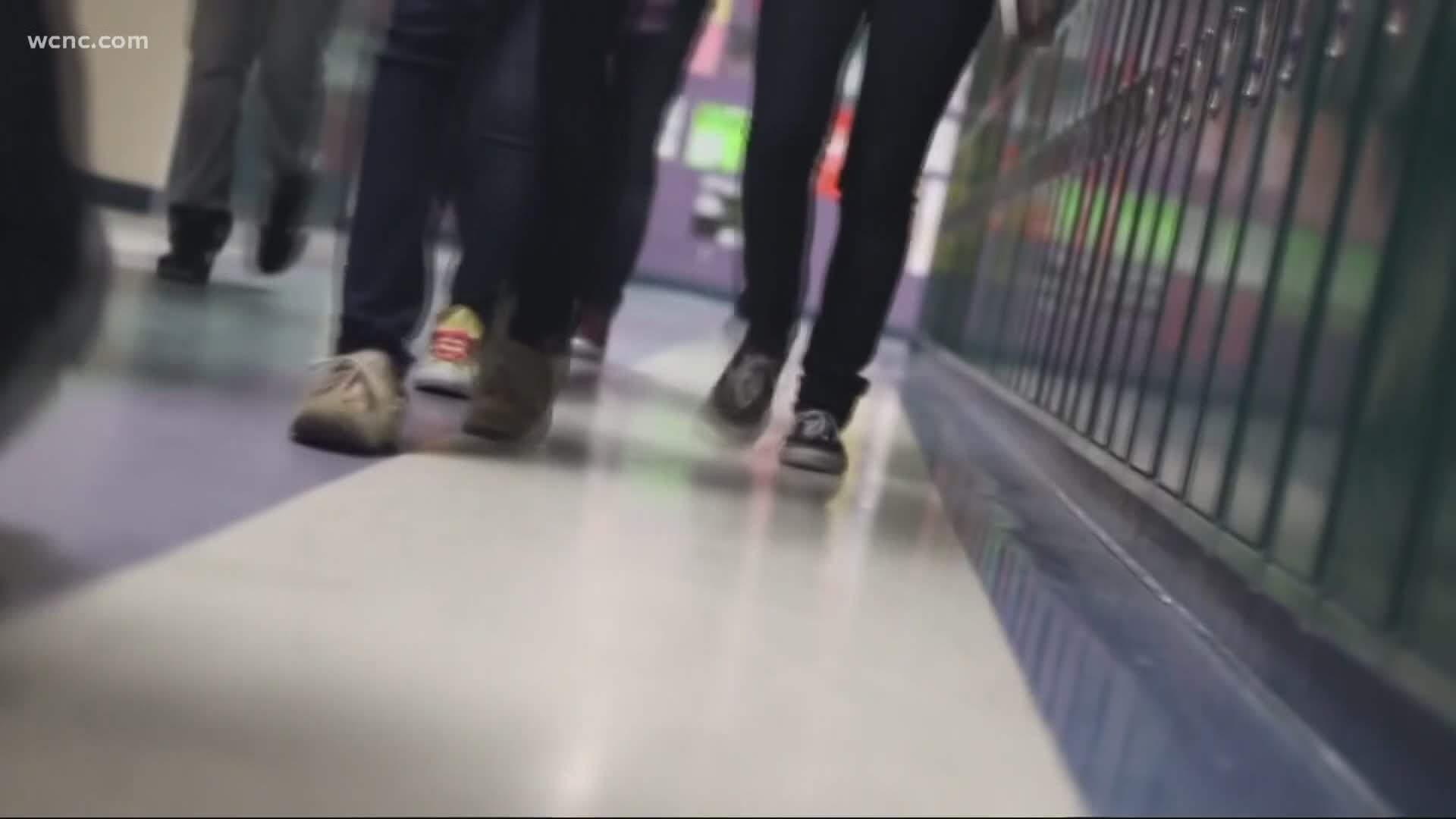NORTH CAROLINA, USA — As we all witnessed history in the making following the attack at the U.S. Capitol, North Carolina teachers are focused on educating, discussing and informing students all about these historic moments.
From different grade levels, different school districts and even different teaching subjects—most teachers agree the topic is important.
“All of us really are shell shocked by what happened yesterday and it seemed like it was not a moment to ignore,” said Justin Parmenter, a seventh grade English teacher in Charlotte-Mecklenburg Schools.
As part of his lesson plan, Parmenter chose to create a slideshow including various pictures taken from inside the Capitol at the time of the riots and asked his students to discuss two different questions—"What do you notice?" and "What do you wonder?"
“Once the first student raised their hand and spoke after that it was like the flood gates opened and people had a lot to say about how they felt and what they saw happening,” Parmenter said.
Other teachers like Jerry Goodnight, an eighth-grade social studies teacher at Cabarrus County Schools, said he received mixed reactions from his students.
“The vibe from half the kids honestly was not knowing at all and the kids that did know some were confused and then I think there were a lot of kids with underlying fear like this happened I don’t know what it means and it’s scaring me,” Goodnight said.
But overall, most teachers seem to agree the goal is all about getting students engaged.
“This is their country and before long they are going to be leading it so I think it’s important for them to be engaged in real conversation about what’s happening in the world,” Parmenter said.
At Sallie B. Howard School of Arts and Sciences in Wilson, North Carolina, seventh-grade social studies teacher Heather Seibert said she makes it a priority to discuss current events each week with her students.
“That’s what we practice a lot is finding our voices within everything that’s happened-- whether it’s marches, or watching an election. We’re looking for our voices and I want them to express how they feel, but back that up with facts,” Seibert said.
And differing school districts still share similar practices hoping to inform students, but also show them the bigger picture.
”We are very intentional about not necessarily teaching students facts and facts only, but we can relate the themes that we see throughout history,” Goodnight said. “History doesn’t repeat itself but these larger concepts do.”
Many teachers are also encouraging students to keep personal journals to help document this living history.
“Record what’s happening now because you are the historians of 2021 and 2020,” Seibert said.

